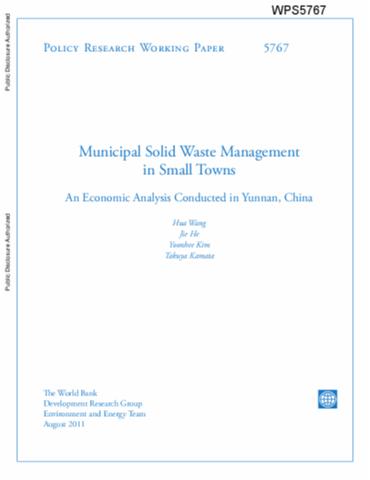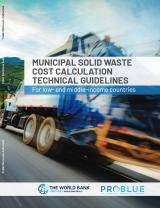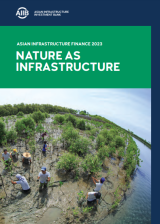
-
Country/City
China
-
Topics
Financing, Management, Recycling, Disposal
-
Published On
January 8, 2011
-
Author(s)
The World Bank, Hua Wang, Jie He, Yoonhee Kim, Takuya Kamata
Municipal solid waste management continues to be a major challenge for local governments in both urban and rural areas across the world, and one of the key issues is their financial constraints. Recently an economic analysis was conducted in Eryuan, a poor county located in Yunnan Province of China, where willingness to pay for an improved solid waste collection and treatment service was estimated and compared with the project cost. This study finds that the mean willingness to pay is about 1 percent of household income and the total willingness to pay can basically cover the total cost of the project. The analysis also shows that the poorest households in Eryuan are not only willing to pay more than the rich households in terms of income percentage in general, but also are willing to pay no less than the rich in absolute terms where no solid waste services are available; the poorest households have stronger demand for public solid waste management services while the rich have the capability to take private measures when public services are not available.



